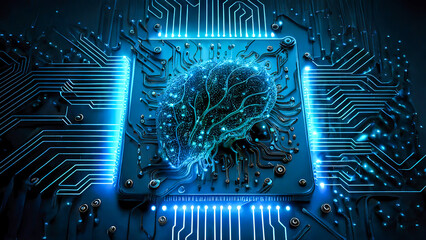Exploring the Ethical Dimensions of AI: Your Ultimate Guide
Artificial Intelligence (AI) has revolutionized the way we live, work, and interact with technology. From personalized recommendations to autonomous vehicles, AI is transforming every aspect of our lives. However, as AI becomes more prevalent, questions surrounding its ethical implications have come to the forefront.
It is essential to consider the ethical implications of AI development and deployment to ensure that this powerful technology is used responsibly. In this guide, we will explore the ethical dimensions of AI and discuss how we can promote ethical practices in the field of AI.
The Importance of Ethical AI
As AI becomes increasingly integrated into society, it is crucial to establish guidelines and standards for ethical AI development. Ethical AI can help prevent bias, discrimination, and unintended consequences that may arise from AI systems.
By prioritizing ethics in AI development, we can create more trustworthy and transparent AI systems that benefit society as a whole. Ethical AI can also help build public trust in AI technologies and ensure their acceptance and adoption.
Key Ethical Considerations in AI
There are several key ethical considerations to keep in mind when developing and deploying AI systems. These include issues such as transparency, fairness, accountability, privacy, and the impact of AI on society.
Transparency is essential in AI systems to ensure that users understand how decisions are made and can trust the system’s outputs. Fairness is critical to prevent discrimination and ensure equal opportunities for all individuals.
Accountability is another key ethical consideration in AI, as it is essential to hold developers and users accountable for the decisions made by AI systems. Privacy is also a significant concern, as AI systems often deal with sensitive data that must be protected.
Promoting Ethical AI Practices
There are several ways to promote ethical AI practices in the development and deployment of AI systems. One approach is to prioritize ethics training for AI developers and stakeholders to ensure they understand the ethical considerations involved.
Another strategy is to incorporate ethical guidelines and frameworks into the design and development process of AI systems. By integrating ethical considerations from the outset, developers can proactively address ethical issues and build more responsible AI systems.
The Future of Ethical AI
Looking ahead, it is crucial to continue advancing ethical practices in AI to address emerging ethical challenges and ensure that AI technologies benefit society responsibly. By promoting ethical AI practices and fostering a culture of ethics in AI development, we can harness the full potential of AI while mitigating potential risks.

As we continue to explore the ethical dimensions of AI, it is essential to prioritize ethics in the development and deployment of AI systems. By fostering a culture of ethical AI practices, we can ensure that AI technologies have a positive impact on society while minimizing potential harms.
For more information on AI ethics and best practices, check out these resources:
Exploring the Power of Chat GPT OpenAI: Your Ultimate Guide to AI ChatbotsUnlocking the Power of AI Open Chat: Your Ultimate Guide to AI ConversationsExploring the Power of AI Studio: Your Ultimate Guide to AI InnovationExploring the Power of Inflection AI: An Ultimate GuideUnleashing the Potential of Cactus AI: Your Ultimate Guide to AI Innovation
Connect with us on social media:
Facebook: pagolAIDiscord: Join our communityVisit pagol.ai
This article is created by automation at pagol.ai.
Check out Haprime for all your ecommerce needs